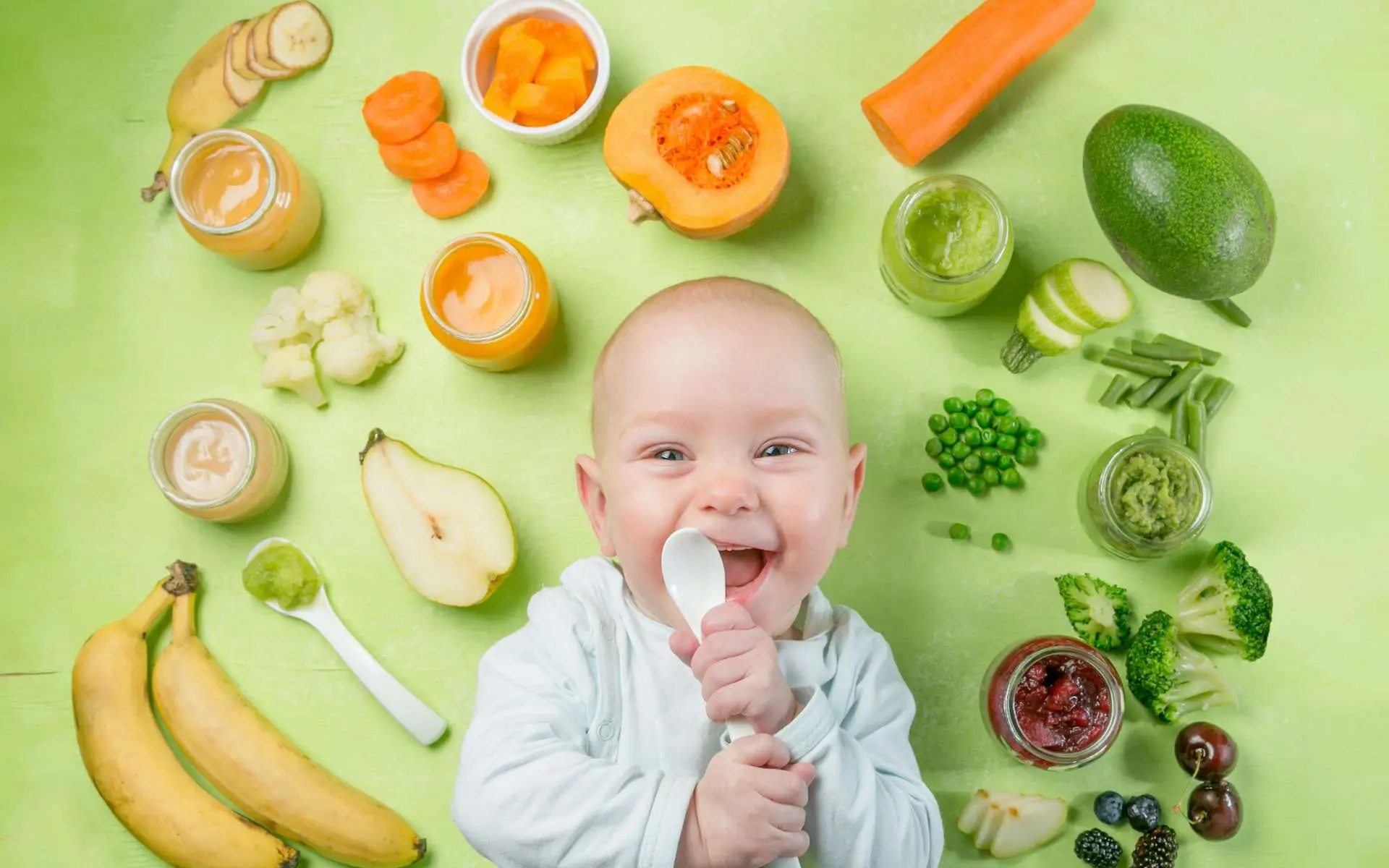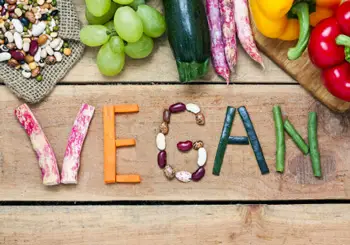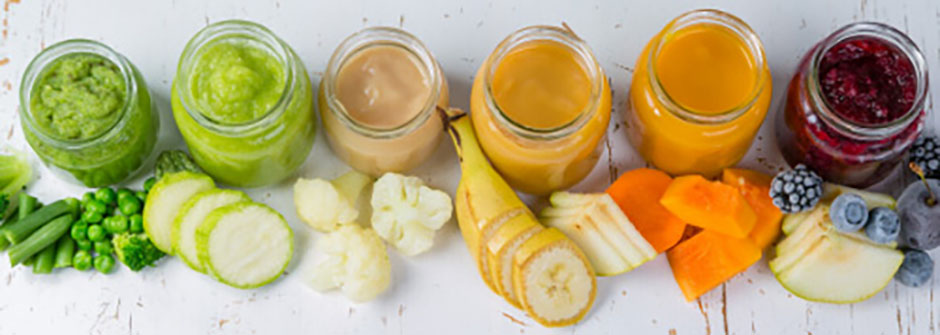
Stages of baby food diversification
Food diversification is one of the major milestones in a child’s development. Introducing him to new flavors, textures, smells and colors is to awaken him to nutrition and introduce him to the pleasure of eating. Step by step, the child becomes familiar with new foods for their enjoyment and happiness.

The beginning of food diversification: between 5 and 6 months
After 6 months, breast or infant milk consumed exclusively is no longer enough to cover the baby’s nutritional needs. It is therefore important to diversify the diet of the child who is able to chew food in order to swallow it.
Due to the risks of food allergy, it is strongly advised not to start food diversification before the child’s 4 months, as the intestinal barrier is not mature enough. For children known as “at risk of allergy” - father, mother, brother or sister with allergies - it is recommended that diversification not begin until after 6 months.
Remember these rules when diversifying:
The child at the heart of everything
- From liquid to solid... there’s no rush
- Something new
- Diversifying lunch first
Introduction of fruit from 4 months

Starting at 4 months: In addition to a bottle or lunch or afternoon feeding, you can offer baby 1 to 2 teaspoons of cooked and mixed fruit.
At 6 months: half a pot of compote per day.
At 12 months: a pot of compote to be distributed at lunch and snack.
At 18 months : 2 fruits per day. The fruit corresponding to the value of the child’s closed fist. So for small handcuffs, half an apple is the value of a whole fruit.
Starches from 5 months
5 months: one teaspoon a day of gluten-free cereal.
At 6-8 months: a small potato to put with the vegetables and 1 tablespoon of cereals with gluten.
At 12 months: 2 to 3 tablespoons of cereal, 2 potatoes the size of an egg, and a slice of bread.
At 18 months: 3 to 4 tablespoons of cereal, 3 potatoes the size of an egg, and 2 slices of bread.
Age 3: 3 potatoes the size of an egg and 3 slices of bread.

Protein: meat, fish and eggs

Meat, fish and eggs are a preferred source of iron for your child, whose needs are important at this age. You can choose:
All meats, including ham cooked without rind, by limiting offal and deli.
All fish: fat, lean, fresh or frozen, but avoid breaded fish. Consider varying them while offering two servings of fish (including a fatty fish) per week to your child, and of course consider carefully removing the edges.
Hard-boiled eggs
At the beginning of food diversification, mix protein with vegetables. Afterwards, cut them very finely or crush them.
For quantity, do not introduce one serving of meat, fish or egg per day to one of the two main meals (lunch or evening) and count:
From 6 to 8 months: 10 g total per day, equivalent to 2 teaspoons of meat or fish or 1/4 of boiled egg.
From 8 to 9 months: 15 to 20 g total per day, equivalent to 2.5 to 3 teaspoons of meat or fish, or just over 1/4 of boiled egg.
From 10 to 12 months: 20-25 g total per day, equivalent to 4 teaspoons of meat or fish, or just under 1/2 hard-boiled egg.
From 12 months: 25 to 30 g total meat or fish per day or 1/2 hard-boiled egg.
Hydration
%20copie.webp)
Water is the only drink your child can drink when he is thirsty outside of his meals. Use the same water as when preparing his bottle.
Fruit juices, on the other hand, are not indispensable, infant milk and breastfeeding being valuable sources of vitamins.
For VEGAN or vegetarian parents
If it is possible for adults to replace animal protein with plant-based products such as tofu or legumes, it is not possible for children, as the nutritionist explains: It is very important to meet babies' protein needs with meat, fish or eggs, because studies have shown that plant products are not suitable for their development, they need animal protein. It will take 15 months for legumes to be well tolerated by their digestive system.”

Sugar, salt, cow’s milk: what to avoid in the first year
%20copie.webp)
The theory of 1000 days considers that everything is formed in children between 0 and 3 years, so we prefer to offer the healthiest possible diet during the first three years. The basic principles: do not add anything (neither sugar nor salt) to not accustom them, and avoid as much as possible industrial products. Choose compotes and dairy products in the baby’s section, without added sugars, and avoid as many sugary drinks as possible – soda, syrups, fruit juices – before 3 years. For milk, it is recommended not to give cow’s milk, too rich in protein, before 3 years: studies have shown that the consumption of cow’s milk in babies can cause overweight in adulthood, so they prefer a reconstituted growth milk.
If you can’t prepare his meals...

Don’t feel guilty if you can’t make a home-cooked meal for your child. On the other hand, choose commercial dishes specifically designed for children that meet strict French and European standards.